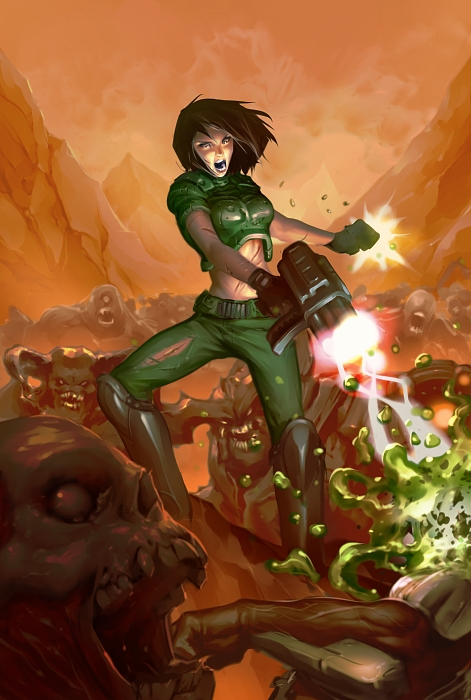So if you don’t know, Kevin Afghani, the new voice actor for Mario and Luigi…
[insert drumroll sounds]
…has he/him in his Twitter bio.
Yeah that’s it. It’s not that the voice actor uses some kind of pronouns that may trigger people like they/them, xe/xim, etc. It’s that the voice actor is a cisgender male who uses he/him like any other normal male human and nothing else. SwitchPlayed is literally whining about nothing.
You think you’re so woke, but look at you dead naming X. Better check your privilege
/s
I’ve been told that corporations are people, and you should call people the names assigned at birth, so that’s what I’m doing.
¯\_(ツ)_/¯
I stand behind x.
I will not clarify if I’m taking about the social media site or the porn site.
new voice actor has he/him in his Twitter bio
This is the first stage of the white christian genocide.
Quick everyone blockade at the local Golden corral!
at least!
Without context this post was meaningless.
Thanks
The he/him indicates support, or at least acceptance, of trans people. The only thing that’s good enough for these people is openly hating trans people.
Is this the “forced diversity” I keep hearing about?
the “no pronoun people in my nintendo” part was so fucking funny that i had to look up whether this is bait or not
“My pronouns are Mario/Luigi.”
It sounds like a bait but it unfortunately isn’t
This guy literally whining about the new voice actor having pronouns
What a sad life that person lives
saying that yer afraid of pronouns because trans people use them is like saying yer afraid of cereal because some people eat raisin bran and you eat frosted flakes
Let’s be real tho, raisin bran is pretty fucking terrifying
Raisin Bran slaps and while I’m here so do Grape Nuts
Excuse me what are grape nuts
It’s basically tiny 100% fiber nuggets. It feels like you’re chewing gravel it’s great
yum
I assume they’re grape flavored?
Ahh that’s the thing. Not even remotely
then what do they taste like lol
and why are they named that I wonder
You might be more familiar with the off brand, deez
You set yourself up for one of the best “deez nuts” jokes ever, and nobody took the chance. I’m in shambles.
this keeps happening to me and I don’t know why
You just live to see grapes be abused, huh?
You had me in the first half
So I don’t know what “Mario is pronouns now” means, and I don’t want to feed a Search Engine to figure it out. Sounds like I don’t need to know!
The new voice actor for Mario and Luigi in the next game, Kevin Afghani, afaik a cis man has … drumroll please … he/him pronouns in his twitter bio. They’re literally whining about a cis man using male pronouns.
Hmm. That’s not a controversial as I was hoping for.
Nintendo isn’t being bold enough.
Birdo came out as trans.
What do you think is the average rage-baiter take of Birdo? What’s worse for the anthropomorphic glory-hole in our children’s Nintendo games: that Birdo is an effeminate man, or t r a n s?
SwitchPlayed is literally scared of nothing
no pronoun people in my nintendo my
Transphobes eVolved from one braincell collectively to two, and thats terrifying
Lmk when they get to the point of having one each
I think the species will die out by then
Soooo… In 5 to 10 years?
Id say maybe closer to 15
Just start misgendering people who screech about hating pronouns.
“Hey, now! Leave Brian alone! She’s just voicing her opinion! Don’t attack her! She doesn’t deserve all the hate just for that!”
I like to give them diminutive nicknames. Bill is now Wittle Biwwy. You don’t get to choose what we call you, asshole.
The far right will hate it but the left won’t care since they’re gender abolitionists
Good.
They calling me xi/xer like I’m Caesar
conqueror of CISalpine gaul
Pronouns are played out.
I’m all about amateurnouns.
What’s your adverb? Mine is lazily.
“My” is a pronoun.
I think it’s an adjective.
By most modern accounts, it’s a determiner.
One of them floaty guys that try to kill Harry?
No, a determiner is a person who mines deuterium.
I thought determiners were the guys that hacked games for secrets and stuff?
No, that’s a dataminer.
A determiner is a mafia-type, usually found in smoke-filled back rooms with wads of cash and a pistol on the table.
“My” is the first-person singular possessive pronoun in English. It fills the same role in a sentence as the pronouns “his” or “her” or “their”.
“This is my/his/her/their thing.”
I don’t see how it could be anything but a pronoun.
A pronoun replaces the noun. An adjective usually accompanies the noun, but it never replaces it.
“My house is there”. I’ve never heard anyone saying “My is there”. But I did hear saying “Mine is there”.
That’s actually a matter of some contraversiality.
You can’t actually just replace “my” in a sentence with an adjective and have it come out sounding natural. You can say “this is my house” but you can’t say “this is big house”. You’re missing a determiner, not an adjective.
Possessive determiners are determiners which express possession. Some traditional grammars of English refer to them as possessive adjectives, though they do not have the same syntactic distribution as bona fide adjectives.[1]
…
The words my, your, etc. are sometimes classified, along with mine, yours etc., as possessive pronouns[3][4] or genitive pronouns, since they are the possessive (or genitive) forms of the ordinary personal pronouns I, you etc. However, unlike most other pronouns, they do not behave grammatically as stand-alone nouns but instead qualify another noun, as in my book (contrasted with that’s mine, for example, in which mine substitutes for a complete noun phrase such as my book). For that reason, other authors restrict the term “possessive pronoun” to the group of words mine, yours etc., which replaces directly a noun or noun phrase.[5][6] — Wikipedia, Possessive determiner
This is further complicated by the fact that some words are sometimes true pronouns, and sometimes possessive determiners (his, her, its). In this way, it is difficult to fully separate the role of possessive determiner from the role of pronoun.
But thank you for making me research it a bit more.
Depends on the language, some languages use the pronoun as the possessive as well.
He, she, it, das S muss mit
Everyone’s gots a fear of something?
deleted by creator
deleted by creator
When the business is pandering
You sound like a person who sorts things into a “woke” category.




















